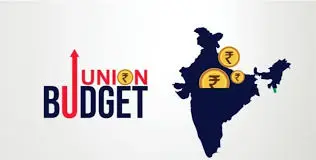Business News
Union Budget 2024: FM Nirmala Sitharaman seeks inputs from key stakeholders in pre-budget deliberations
SUMMARY
Budget 2024: Experts urged Finance Minister Nirmala Sitharam during the annual pre-budget meeting to focus on curbing inflationary pressure, increase quality expenditure and generate employment in the country. CII President proposed to increase capex by 25% against the revised estimate of FY24.

The demand to raise capex comes at a time when the government has set a target to lower the fiscal deficit.
Union Finance Minister Nirmala Sitharaman chaired the first pre-budget meeting with leading economists for the upcoming Union Budget 2024-25, which is likely to be presented in the second half of July.
The meeting mainly focused on creating more jobs, reducing fiscal deficits, boosting capital expenditure and infrastructure, the Economic Times reported. The economists highlighted that there is a need to focus more on job creation and policies targeted towards generating more employment opportunities in the country.
Confederation of Indian Industry (CII) president Sanjiv Puri, who was present in the meeting with Sitharaman and other finance ministry officials, said capital expenditure should be increased by 25% as against the revised estimate of FY24.
The demand to raise capex comes at a time when the government has set a target to lower the fiscal deficit. While presenting the interim budget in February, Sitharaman said the government would target a fiscal deficit of 5.1% of the GDP in FY25, which is lower than 5.6% estimated in FY24.
Several economists, who held consultations with Sitharaman, suggested that the inflation target introduced by the government in 2016 must also be reviewed. The current CPI rate is 4.75%, which is within the bandwidth of 2% to 6%. The CPI measures the weighted average market basket of consumer goods and services purchased by the households in the country.
In the meeting, Federation of Indian Chambers of Commerce and Industry (FICCI) suggested for greater simplification of taxation, highlighting that there are now multiple rates of withholding taxes, with high tax collected at source. This will reduce the complexity and confusion associated with tax laws and regulations. Also, it reduces the administrative burden on the taxpayer. Furthermore, FICCI additionally proposed that the long-term capital gains tax rate be set at 10% for financial assets and 20% for immovable assets, Business Standard report.
Sandeep Puri, president of FICCI, recommended that to boost consumption demand in the short-term several steps must be taken such as providing marginal relief in the income tax, reduction in excise duties for petrol and diesel, and upward revision on minimum wages under the Mahatma Gandhi National Rural Employment Guarantee Act (MGNREGA) as well, the newspaper further reported.
Following the meeting, Mukul Bagla, the chair of the PHDCCI’s Direct Taxes Committee, told reporters, “We have suggested to the revenue secretary to take the slab of 30% beyond ₹40 lakh income so that at least the middle class is spared from this tax bracket, and is taxed at the rate of 20%-25% below ₹40 lakh.”
People who earn more than ₹15 lakh are currently subject to a 30% tax under the new tax regime. Under the old tax regime, this is applicable to anyone earning more than ₹10 lakh.
By signing up you agree to Upstox’s Terms & Conditions
Next Story

